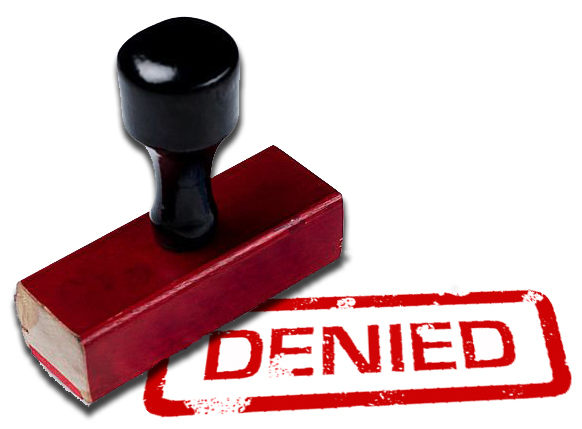We’re still doing a weekly newsletter… we’re just posting pieces of it every day. The news is fresher this way…

YOUR MOTION IS PREMATURE, AND THUS DENIED
Everyone knows that 18 U.S.C. 922(g) makes it illegal for a felon to possess a firearm. What is less known is that the statute has a whole laundry list of people besides felons who cannot possess a gun or ammo. For example, subsection (3) prohibits someone “who is an unlawful user of or addicted to any controlled substance” from packing heat.

When an Iowa probation officer stopped by Kyle Turner’s place, Kyle – who was on state probation for something (we don’t know what) – admitted he had a shotgun in his bedroom. Kyle also dropped some urine that tested positive for methamphetamine.
The Feds indicted Kyle for possession of a firearm by an “unlawful user of metham-phetamine.” Kyle filed a motion to dismiss on the grounds that 922(g)(3) was unconstitutionally vague as applied to his conduct, because his indictment failed to allege that he “engaged in regular use of methamphetamine.”
The government responded that the motion to dismiss was premature, because its evidence that would answer Kyle’s claim would be presented at trial. The district court denied Kyle’s motion. After that, Kyle pled guilty while reserving his right to appeal the denial.
 Last Tuesday, the 8th Circuit reversed, and sent the case back to the trial court. Federal Rule of Criminal Procedure 12(b)(1) lets parties “raise by pretrial motion any defense, objection, or request that the court can determine without a trial on the merits.” A pretrial motion can be decided if trial of the facts surrounding the commission of the alleged offense would be of no assistance in determining the validity of the motion. The Rule says a district court must rule on such a motion before trial unless there is “good cause to defer a ruling” and deferral will not “adversely affect a party’s right to appeal.”
Last Tuesday, the 8th Circuit reversed, and sent the case back to the trial court. Federal Rule of Criminal Procedure 12(b)(1) lets parties “raise by pretrial motion any defense, objection, or request that the court can determine without a trial on the merits.” A pretrial motion can be decided if trial of the facts surrounding the commission of the alleged offense would be of no assistance in determining the validity of the motion. The Rule says a district court must rule on such a motion before trial unless there is “good cause to defer a ruling” and deferral will not “adversely affect a party’s right to appeal.”
Here, the Circuit said, a trial on the merits was needed to decide Kyle’s pretrial motion to dismiss. Trial courts may consider evidence beyond the pleadings to make factual findings in pretrial orders, but they may not make factual findings when an issue is “inevitably bound up with evidence about the alleged offense itself.” The relevant question is not what evidence the court relied upon in its ruling, but rather what type of factual finding it made.
 The 8th said that the statute’s language, “unlawful user of… any controlled substance… runs the risk of being unconstitutionally vague without a judicially-created temporal nexus between the gun possession and regular drug use.” Therefore, to rule on Kyle’s constitutional challenge, the district court had to determine whether he had engaged in regular drug use at the time he possessed the firearm. The appeals court said the “facts surrounding the commission of the alleged offense would assist with that determination, and the contested defense therefore could not be ruled upon without a trial on the merits.”
The 8th said that the statute’s language, “unlawful user of… any controlled substance… runs the risk of being unconstitutionally vague without a judicially-created temporal nexus between the gun possession and regular drug use.” Therefore, to rule on Kyle’s constitutional challenge, the district court had to determine whether he had engaged in regular drug use at the time he possessed the firearm. The appeals court said the “facts surrounding the commission of the alleged offense would assist with that determination, and the contested defense therefore could not be ruled upon without a trial on the merits.”
So the fact the government didn’t find it convenient to put its evidence on to oppose Kyle’s motion does not mean the motion should be denied.
United States v. Turner, Case No. 16-1142 (8th Cir. November 22, 2016)

